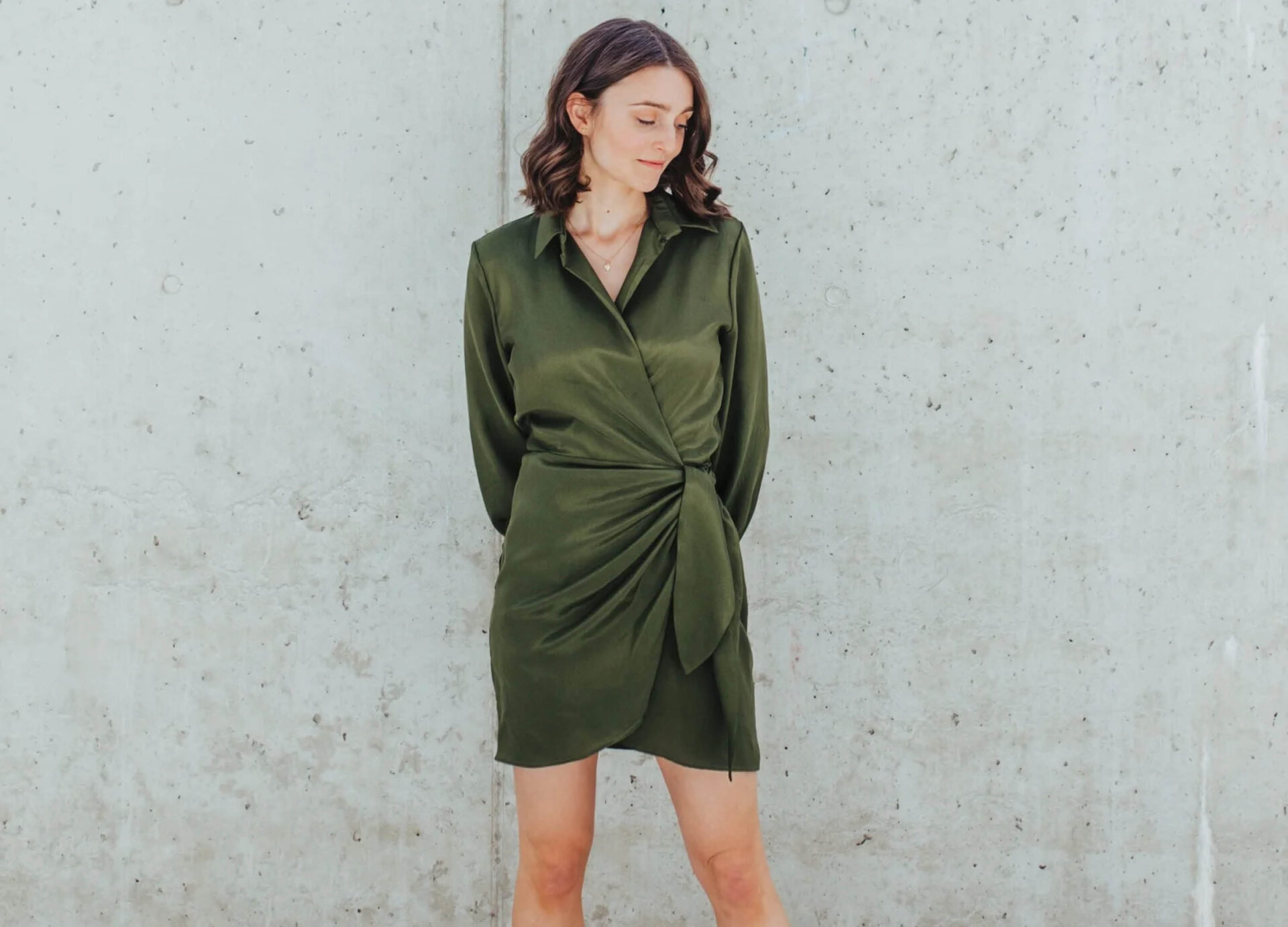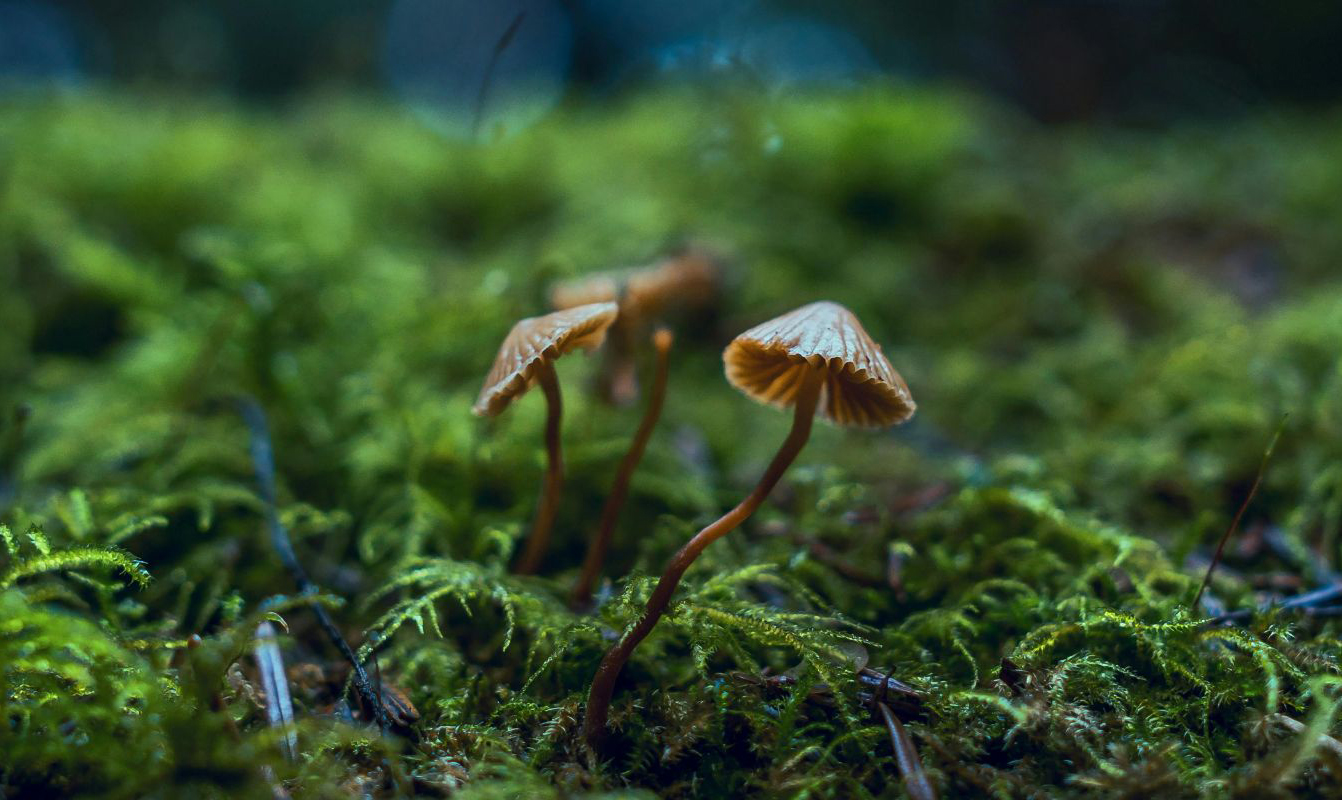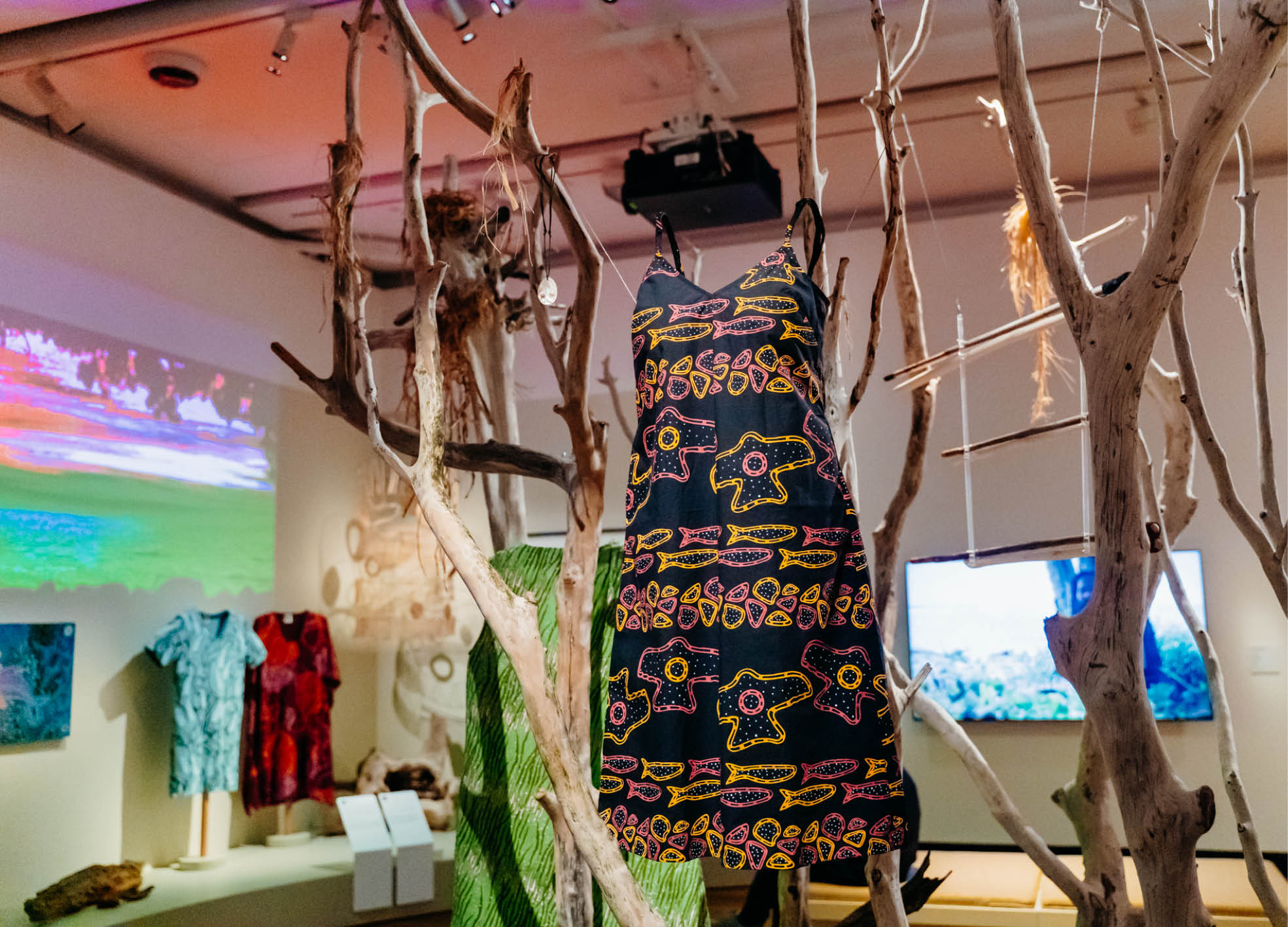“It’s Time We Started Embracing Death” – A Beginner’s Guide to Grief
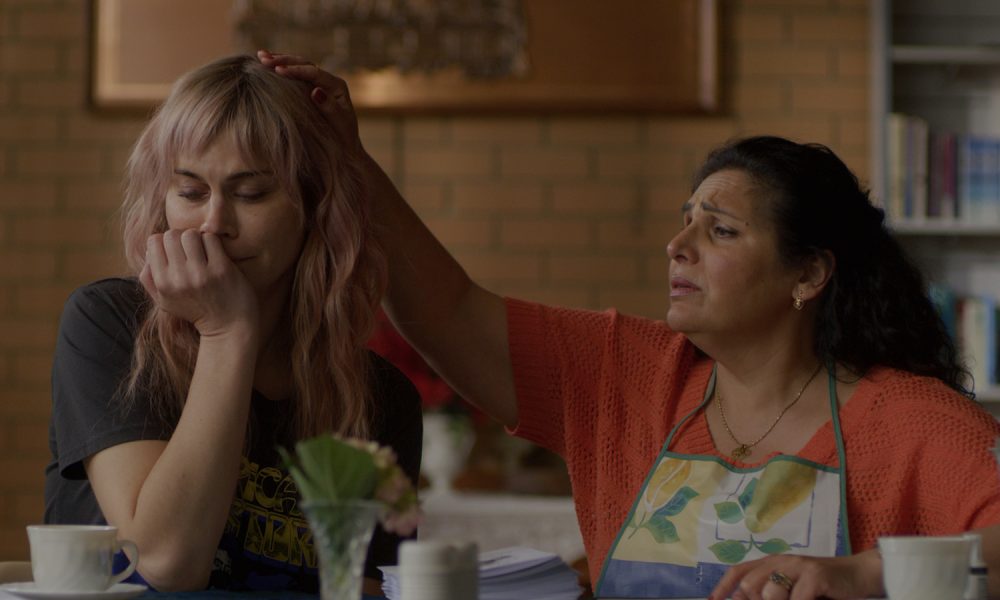
- Words by Peppermint
Forty-eight hours before Anna Lindner’s father died from cancer, her mother received the same diagnosis. In order to sit with that kind of world-imploding, identity-questioning grief, she put pen to paper. What resulted was A Beginner’s Guide to Grief – a semi-autobiographical series that leans into the dark, dry comedy that kept Anna buoyant through her own journey.
With an open invitation to have frank, open and messy conversations about death and to encourage others to grieve in their own way, we chat to Anna about why it’s high time we started embracing death with the same level of reverence as birth.
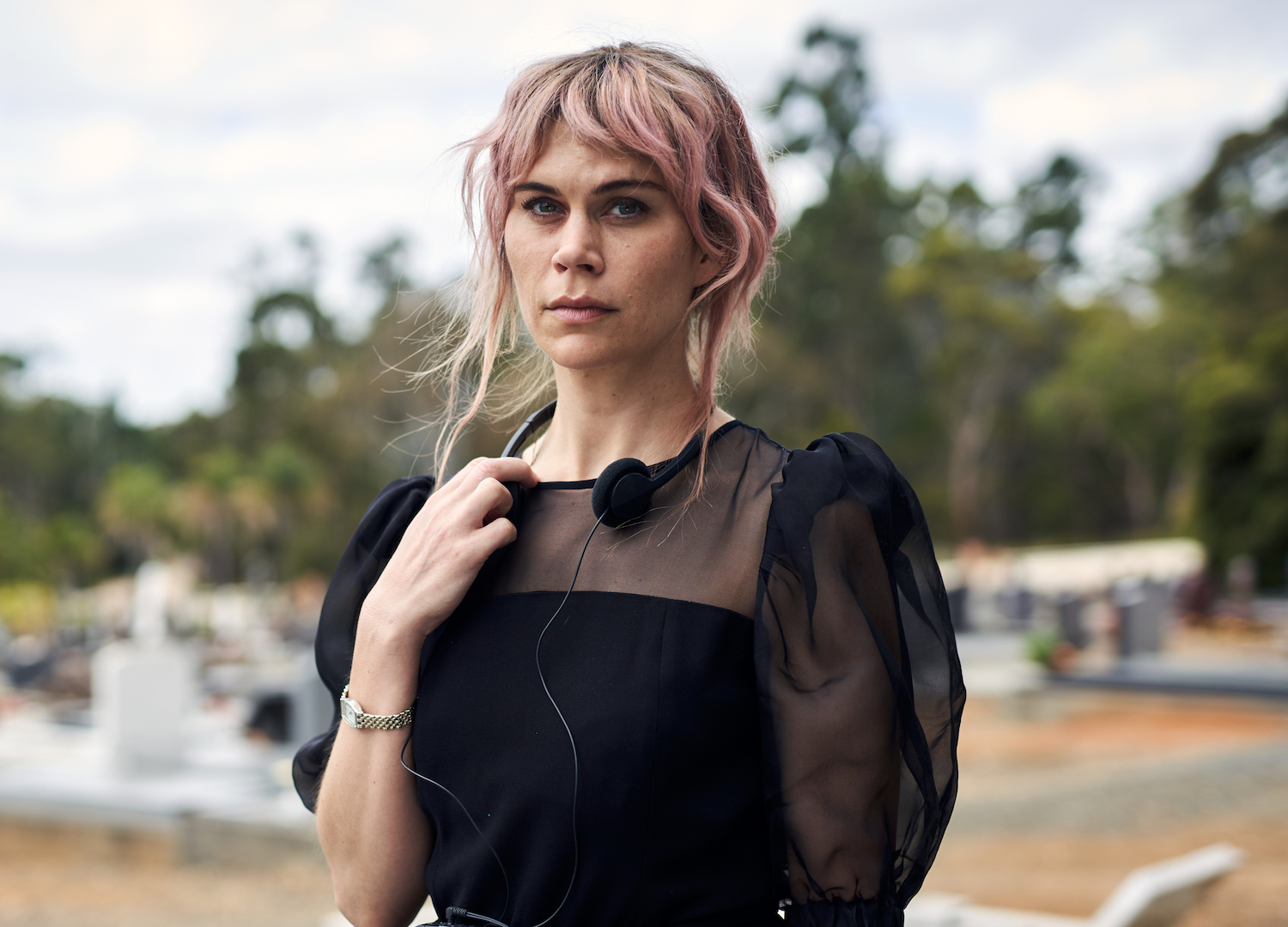
Grief is such a universal yet unique experience. Can you talk us through a little bit about your own experience and why you were compelled to create the series…
Like so many actors from around the world, I’d relocated to LA, dedicated to the pursuit of developing my professional career. I’d just started to make some headway when I was due to fly back to Adelaide for my best friend’s wedding. I’d put myself under so much pressure to be what the industry was telling me to be – I’d pretty much been starving myself for the three years I’d been there – so by the time the wedding celebrations had ceased, I had two choices: A) get back on a plane to LA or B) have a full-blown nervous breakdown. Just to keep things fresh and exciting, I chose option B. Next thing, my unstoppable, eternally unbreakable dad found out he had 10 months to live thanks to undiagnosed prostate cancer. In my heart, I knew then I couldn’t leave. So instead, I decided to throw myself into giving him the best chance at a quality of life for what remained of it (while secretly hoping he could beat it). Dad refused to do chemotherapy, so we travelled Australia seeking every possible drug trial, volunteer cancer study and alternative therapy that offered a glimmer of hope. For three years, my Dad, Mum and I became this motley crew of hope-seeking travellers complete with all the vomit, bowel explosions and tears you could expect from a bunch of rockers on tour, except, of course, ours was not fuelled by vodka and backstage antics, it was fuelled by a self-absorbed tour manager named ‘Cancer’.
I’d never been told what death and grief are really like on such an intimate level. And I most definitely had not seen it accurately portrayed in the stories we watch on screen. I decided I wanted to change that.
Suddenly it became clear that Dad’s body had endured enough and his condition deteriorated rapidly. Medical care and palliative services were so limited in regional South Australia where we lived that I put my hand up to do it myself. Dad’s wish was to not die in a hospital and as challenging and confronting as it was, we wanted to do everything we could to honour that. I held his hand and watched him take his last breath at home. But just two days before he died, my mum was also diagnosed with cancer. It was a surreal nightmare within a nightmare I couldn’t wake from. I swung between deep grief and terror, trying to process my dad’s death knowing full well that Mum could soon be joining him. I poured everything that was left of me into supporting Mum on her journey, meanwhile, I felt like a broken being. I was an empty eggshell being hurled through the eye of a tropical shit-storm. I began documenting every little detail I could, desperate to hold onto the existence of the two people who’d shaped me. The more I witnessed, the more absurd it became – to the point of laughter. Then it hit me – I’d never been told what death and grief are really like on such an intimate level. And I most definitely had not seen it accurately portrayed in the stories we watch on screen. I decided I wanted to change that. I felt this ever-growing compulsion to rip open this curtain of secrecy, shatter the stigma and start an unapologetically honest conversation about the messiness, the awkwardness, the chaos, the beauty, the discomfort and the absurd humour that seems to appear at every turn. And most importantly, to say to people, “You are ok. There is no magical manual you’re meant to be following. Your experience is valid and it is yours to traverse without justification or apology.”
To what extent was writing the show an act of processing your own emotions?
Well, that’s the thing about grief. She’s a sneaky little creature. She’ll catch you off guard and throw a mud pie in your face just when you think you’ve got it all together. I honestly thought I’d done all my processing, I wasn’t consciously thinking I had anything left to confront, but sure enough, it wasn’t long into the process I had to start running a damp cloth over the keyboard for all the snot and tears it was collecting. Then it came time to perform the work on camera and low and behold, I found myself navigating a whole new layer of emotional complexity. The onion layers kept coming. I accept now that this never really stops, you just keep shedding layers. They become more subtle in time, but as we all know, with onions come tears. You don’t need to resist it, just witness them and let them flow. They’ll pass on their own accord.
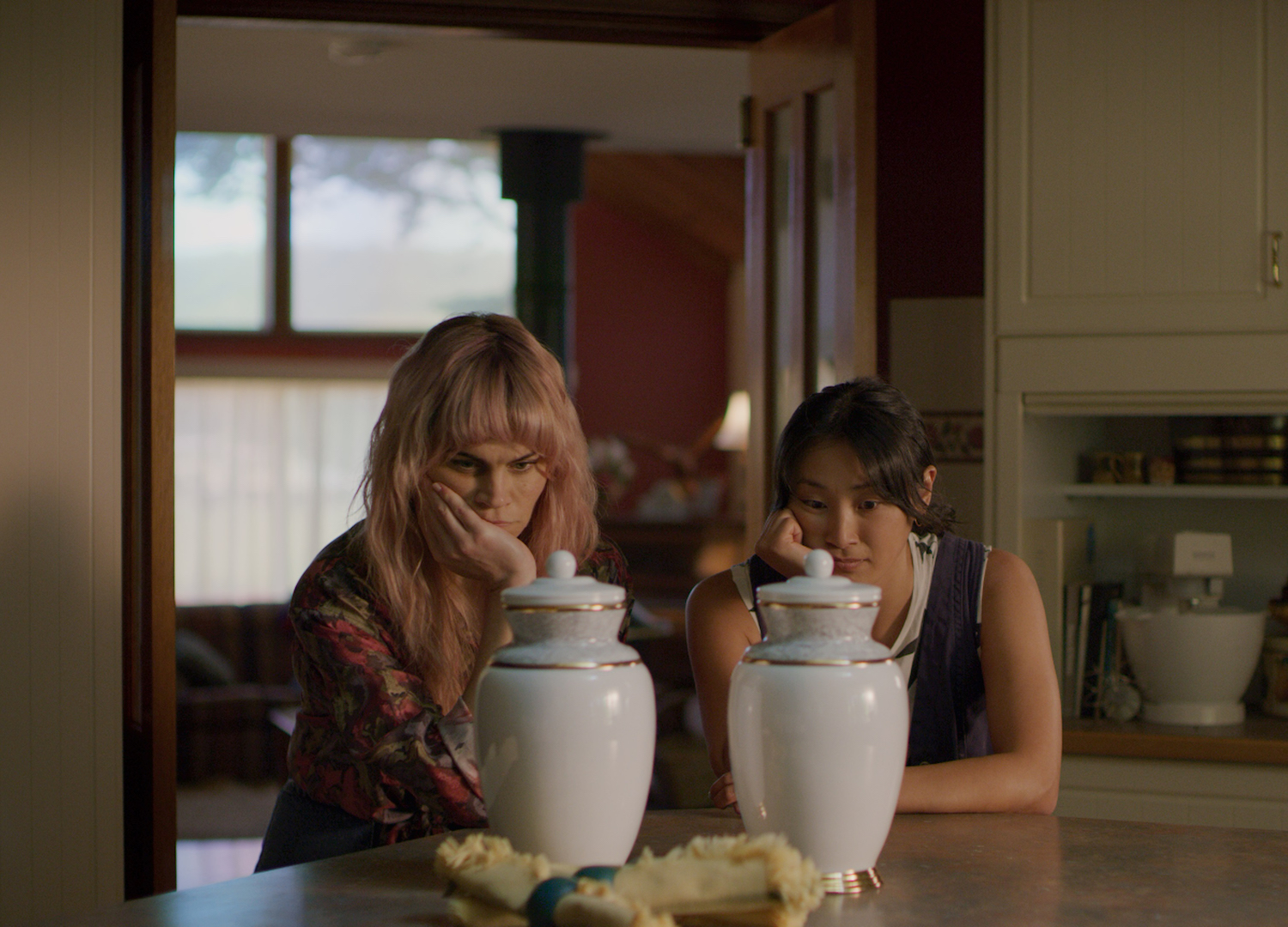
What was the best thing someone said to you during your grieving?
Honestly? Nothing. And that’s totally ok. I know everyone was trying their best and so was I. It’s another thing I’ve come to accept – there’s a good chance that when loss is still so fresh, almost all words of comfort offered to you will just make you want to scream, punch something or set off a firecracker under their… feet. I want people to know that whatever feeling or thought overwhelms you in those moments, it’s ok – you’re not a horrible person and neither are they. There are no words. Sometimes the greatest comfort for someone in grief is simply to sit with them. If they’re open to a hug, squeeze them tight. Silence is ok. And so is just simply asking someone what they need right now rather than assuming what you think they need.
READ MORE: Navigating Personal Trauma in an Increasingly Traumatised World
What about the worst?
There are too many to mention: “You must be so relieved and excited to know he’s now in the arms of Jesus in heaven.” At first, I wanted to slam her hand in the cutlery drawer. Then I pictured my dad and Jesus slow dancing in a club and burst out laughing. That didn’t go down so well, but neither does forcing your religious take on the afterlife onto someone who’s grieving.
When we give ourselves full permission to let joy and grief co-exist, we start to become conscious navigators of our experience, we empower ourselves to own our journey of loss and embrace it for all that it is: dark, light, painful, terrifying, beautiful, overwhelming, funny, unpredictable and totally, uniquely yours.
“I want people to know that grief and joy don’t just co-exist, but they belong together.” Can you expand on this thought?
I believe we, as a society, are ready to rethink, reframe and redefine our existing approach and attitudes toward death, dying and grief. This is not only about how we hold space for these pivotal events, but the letting go of outdated notions around what grief is “allowed” to look like or how it “should” be experienced. Most of us immediately feel a wave of guilt when we experience a moment of laughter or a glimpse of joy when we are in grief, or we are shamed by others when we appear to be doing so. We’ve been taught that to display a moment of lightheartedness or amusement somehow diminishes or disrespects the death of our loved one. I think this couldn’t be further from the truth. I wholeheartedly believe that these waves of humour, these unexpected outbursts of laughter, these left-hook punches of comedy that come hurtling toward us in the midst of our mourning are there for a reason. We’re being thrown a life buoy in the middle of the bottomless ocean in which we are desperately treading water. It can’t take you out of the ocean, but it lets you take a breath of oxygen, a moment of relief before the next wave knocks you under again. When we give ourselves full permission to let joy and grief co-exist, we start to become conscious navigators of our experience, we empower ourselves to own our journey of loss and embrace it for all that it is: dark, light, painful, terrifying, beautiful, overwhelming, funny, unpredictable and totally, uniquely yours.
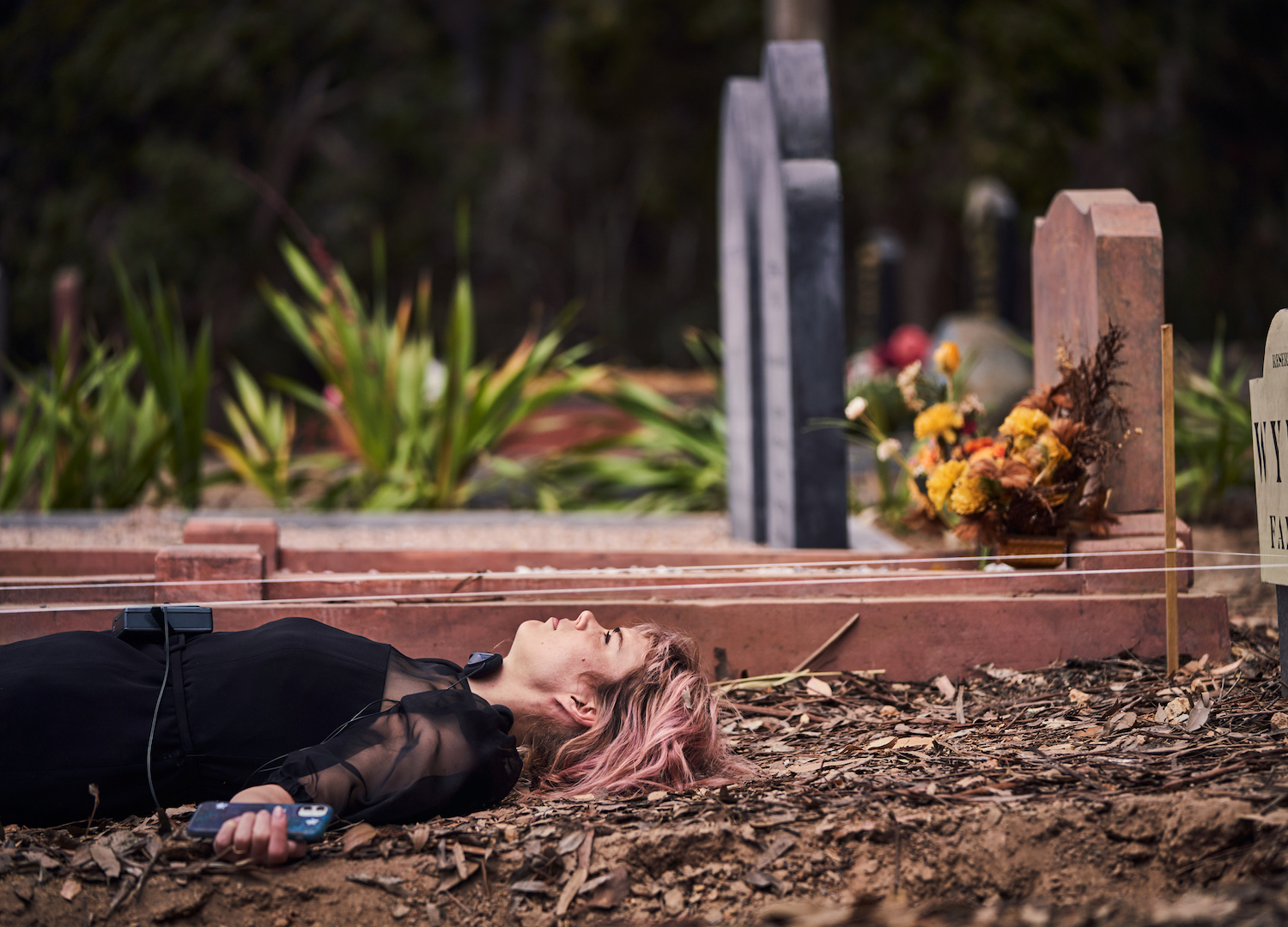
Talking about death can be confronting. We don’t often have the vocabulary to express our emotions. What do you think needs to change to allow us to have these important conversations with our loved ones?
One of the greatest shifts we can put in motion is to begin making these conversations common practice in our families and friendship circles now. Not leaving it to a time when we are suddenly forced to make decisions under duress when someone we love dies suddenly or we receive a terminal diagnosis. We need to start normalising these conversations and the way we normalise them is through practice. The more we practise speaking openly about death, dying and grief ourselves, the more we empower others in our inner circles and larger communities to feel comfortable enough to start sharing their own feelings, wishes and experiences. Clearly knowing someone’s wishes greatly increases the possibility of a ‘good death’ and creates the opportunity of being honoured and celebrated in a way that is truly aligned with who we have been in this life.
Once again, good humour can be a valuable tool in navigating these conversations with the people we love most. It can provide great relief amidst the confronting nature of talking through the idea of you or those closest to you no longer being here. We also need to hold these conversations with compassion – your loved one might voice preferences or verbalise choices that differ from your own and we need to respect that, just as they need to understand ours.
It’s time we started embracing death with the same level of reverence.
Starting the conversation by saying you’d like to talk about your own wishes can feel less confronting for someone else because you’re not forcing them to make decisions, but sharing your own thinking first can help put someone else at ease to begin offering their own thoughts. According to the person you’re sharing this dialogue with, you can approach these subjects gently or try the absolute opposite! Make a fun event of it. Get together with a friend or group of friends and embrace it wholeheartedly! Pose questions to one another or make games of it, like listing the 10 worst songs you could imagine being played at your funeral. As the conversation unfolds, you’re bound to find yourself laughing and crying together, but in doing so, you begin to dissolve the stigma and open up new ideas. By embracing the inevitable and clearly stating what we would like our own death to look like, we begin to tap into a new kind of empowerment in our experience of life. We awaken a new awareness of the preciousness of time, of what is truly important to us and into what, where and who we choose to invest our energy and love.
Birth is heralded as a momentous and sacred event. We congratulate, celebrate and pop corks. We tread softly and go gently around the newborn. We give ample space and time for the family to adjust to this life-changing event. It’s time we started embracing death with the same level of reverence. These are the two universal bookends of our lives. They deserve to be celebrated in equal measure.
JOIN OUR MAILING LIST
Brighten up your inbox with our not-too-frequent emails featuring Peppermint-related news, events, competitions and more!
explore
More articles
It’s beginning to look a lot like Christmas…. Which means we are officially entering party season. Work parties, friend-dos, family get-togethers and then we’re straight into New Year festivities. If you’re lucky enough, you might be staring down the barrel…
Look, I don’t want to make anyone panic but IT’S DECEMBER!!! If you’re planning to give homemade gifts, you’re going to have to act fast. …
Furred, feathered, fishy, scaled… The pets we choose are as diverse as our personalities. (And apparently, quite often we resemble each other.) But they all…
When you hang a painting on a wall, the story stays put. But when you wear a beautifully made garment that may as well be…
Hang out with us on Instagram
It’s all a lot, isn’t it?
We weren’t designed to carry this much emotional grief and world-wide trauma on an ongoing basis. Just know you’re not alone. It’s ok to not be ok. 🫶🏻
Image from @PeopleIveLoved: “I am not sure my tiny brain was meant to understand this enormous grief.”

“We love that we can bring a hint of imagination and whimsy into everyday life by making ordinary objects fun. We’ve learned to appreciate the little wins and to take a moment for each step we achieve.”
Disillusioned by the realities of fast fashion, design grads Emily May and Sidonie Moore ditched clothing for a business that finds fun in the everyday. Enter @TheNonsenseMaker: a collection of unique homewares, fun wall art, greeting cards and more that breathe life into Emily’s illustrations: “I love the idea of taking real-world objects and changing your perspective in a way that brings magic and whimsy into everyday life!”
In issue 64’s feature ‘It all makes sense’, we chat to the Naarm/Melbourne-based duo about their sustainability philosophy, TV re-runs and their commitment to local makers. At stockists now!
Photos: @MeAndMyGirl
#PeppermintMagazine #TheNonsenseMaker #LocalMakers #SustainableCraft

Any New Year’s resolutions on your list? We love this from @OtterBeeStitching - “be brave enough to suck at something new”.
There’s no points for perfection, but you’ll get a trophy for trying. If nothing else this year, take the leap and try something new.
#OtterBeeStitching #Embroidery #BeBrave #TrySomethingNew #EmbroideryArt

Sunday serving suggestion ☀️
Gorgeous photos from @JolieFemmeStore - who make sweet garments from vintage bedsheets.
#PeppermintMagazine #SlowSunday #SwitchOff #Unplug #ReadAMagazine

A toast to the old you 🥂
We wholeheartedly love this post from the brilliant @EmilyOnLife:
“2026: Reinvent, burn it down, let it go (whatever it is). Year of the Snake it up. Exercise your boundaries, exercise your body, take one teeny step every day towards a life that feels better to be in.
But don’t you dare shit on your old self while you do it.
Hold yourself with reverence and tenderness and respect, because you got you this far. You did your very best with the information and tools you had at the time. You scraped yourself together, you made it work, you survived what felt impossible to survive: again and again and again.
You are perpetually in the process of becoming, whether you can feel it or not, whether or not you add it to your 2026 to-do list.“

Some very wise words from @Damon.Gameau to take us into 2026 🙌🏼











